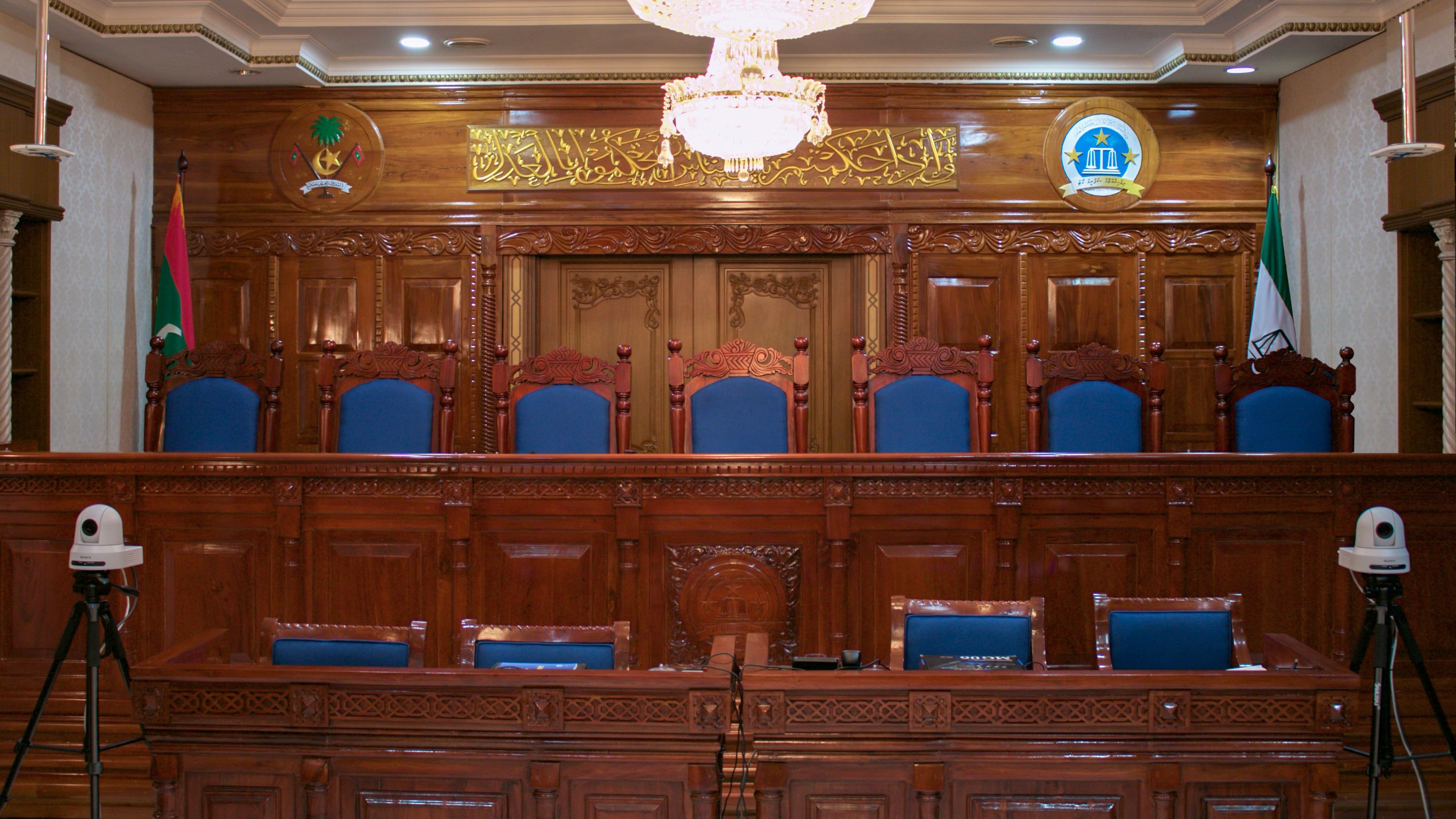Supreme Court grills state attorneys over jurisdiction to hear constitutional challenge
A digest of yesterday's top story.

18 Feb 2025, 09:00
Good morning. Today we’re attempting to unravel legal arguments made at the Supreme Court over contested anti-defection rules inserted into the constitution. Over in the news-in-brief section, we have MPs complaining about their health insurance and an explanation for the sharp drop in customs revenue this year.
The Supreme Court lacks the jurisdiction to hear legal challenges against amendments brought to the constitution, lawyers from the Attorney General’s office argued yesterday, drawing tough questions from justices.
The full bench of the apex court is hearing a case filed by former lawmaker Ali Hussain challenging the constitutionality of anti-defection provisions added to the constitution in November.
According to the controversial amendments – which were pushed through in less than nine hours on November 20 – MPs elected on a political party ticket will lose their seat upon switching parties or following resignation or expulsion from their party. Independent members would also be disqualified by joining a political party, the new rules state.
This is the first time that the Supreme Court has been petitioned to strike down constitutional amendments as unconstitutional.
The new anti-defection clauses violate separation of powers, privileges of lawmakers and several fundamental provisions, including ones that vest all powers of the state with the people and establish parliament as an independent branch with sole legislative authority, Ali Hussain contended.
The amendment infringes on the autonomy of lawmakers by compelling them to act under undue influence rather than in accordance with their conscience and the national interest as stipulated in Article 75, the petition states.
But the substance of constitutional amendments cannot be reviewed by any court, which could only assess procedural fairness of the legislative process, state attorneys contended, stressing the prerogative of the Majlis to amend the constitution. The Supreme Court could interpret constitutional provisions and consider whether laws or regulations comply with the constitution, they said.
Constitutional amendments are not regular laws subject to judicial review as they become part of the constitution itself once passed by a three-quarters majority of the legislature. There is no mechanism or legal authority for courts to declare one part of the constitution as invalid because it conflicts with another, the state attorneys explained.
“If we proceed treating this as a law as interpreted by the petitioner, we would face significant procedural problems," State Attorney Fathimath Haleem warned.
But the constitution explicitly states that amendments to the constitution must be made through "laws," the petitioner’s lawyer Mahfooz Saeed countered. As there is no constitutional distinction between constitutional amendments and regular laws, the Supreme Court should determine if changes violate existing provisions, Saeed asserted.
After opening statements, Justices Husnu Suood and Aisha Shujoon posed several hypotheticals to the state attorneys.
If parliament changed the constitutional provision on Islam as the state religion, “then which court should one go to for remedy?” Justice Suood asked. "Which court would have jurisdiction to review constitutional amendments?" Justice Shujoon interjected as. the state attorneys struggled to provide clear answers.
The justices repeatedly asked where citizens could seek remedies if fundamental constitutional principles were violated.
The hearings resumed this morning for the court to hear from the opposition Maldivian Democratic Party.
Discussion
No comments yet. Be the first to share your thoughts!
No comments yet. Be the first to join the conversation!
Join the Conversation
Sign in to share your thoughts under an alias and take part in the discussion. Independent journalism thrives on open, respectful debate — your voice matters.




